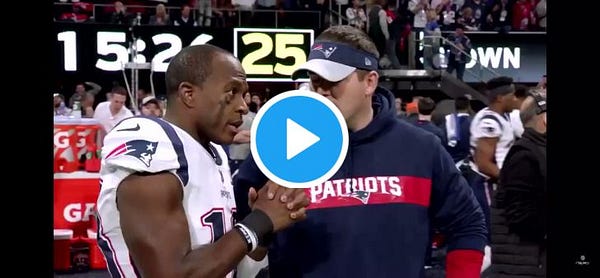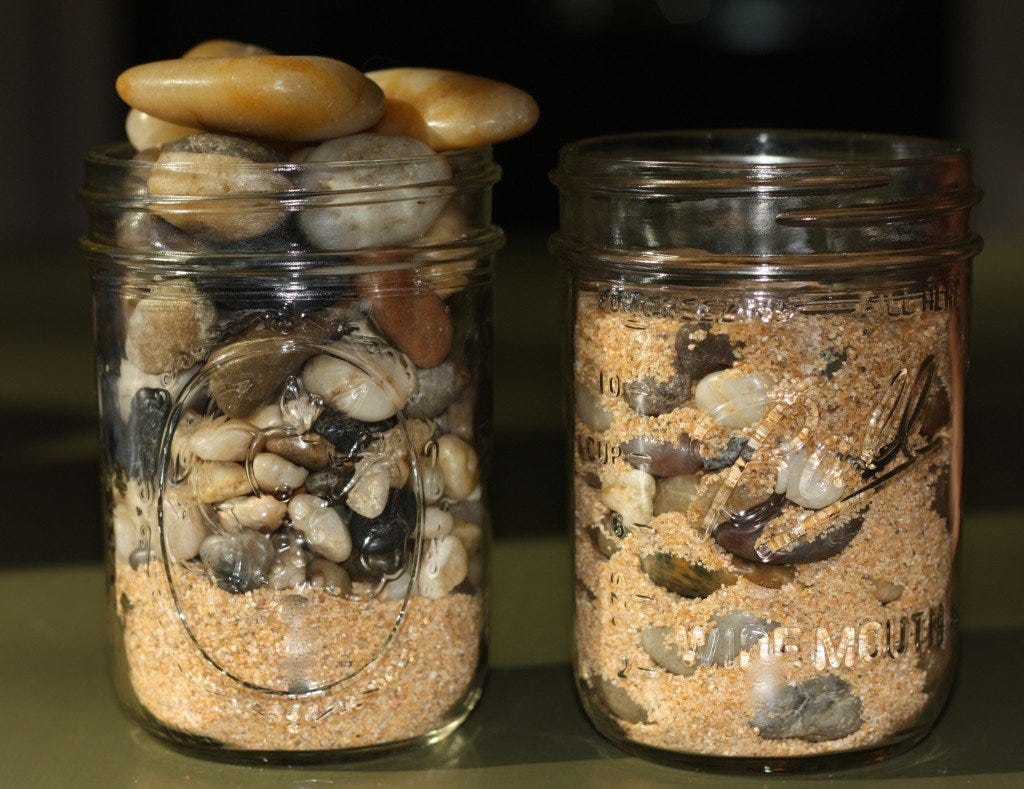What Really Matters In Long-Term Athlete Development
Fundamentals, fundamentals, fundamentals
Like the real estate business, there are three keys to the development business:
Fundamentals
Fundamentals
Fundamentals
Dan & I have had many great guests on our Hockey IQ podcast. One of the consistent themes from our interviewees who work with both professional players and younger players is simple… the best players are the best because they do the fundamentals better than their peers.
Long Term Player Development
The best way to think about long term player development (LTPD) is like a jar. Each player has a jar of potential and the goal is to fit as much into that jar as possible in order to maximize their potential.
There are three key things that need to fit into this jar:
Big Rocks (the big stuff)
Pebbles (the medium stuff)
Sand (the little stuff).
The jar on the left represents putting the sand first, pebbles second, and big rocks in last.
The jar on the right represents putting the big rocks in first, pebbles second, and filling the rest with sand.
Joe Judge
While they are considered the top coaches at the NFL (Bill Belichick) & NCAA (Nick Saban) levels, they are also longtime friends. Saban was the Defensive Coordinator in Cleveland for Belichick when he was the head coach of the Browns.
Despite their lengthy friendship, they’ve only shared a single coach… Joe Judge, the current head coach of the NY Giants. What was the one thing he took away from them?
“Everyone thinks there’s some guru with a magical scheme. Everyone thinks there is a shortcut to being good. But everything I’ve learned… reinforced on a daily basis, that it’s the fundamentals.”


Keith Tkachuk
Keith Tkachuk was a Hall of Fame player. He is the father of NHL stars Brady & Matthew Tkachuk. While clearly there were some athletic genes passed down, Keith also coached his son’s teams.
The result: in 2016, five (!) players from the St. Louis area were selected in the first round of the NHL draft - Luke Kunin, Matthew Tkachuk, Clayton Keller, Logan Brown, and Trent Frederic. There is no real secret to what he and his staff did.
“We didn’t do anything out of the ordinary. We just pounded skills, skills, skills.”
Specifically, he talks about having them skating with their head up, which we’ve covered in detail (Processing Speed: Slowing the perception of speed).
Big Rocks
Big Rocks are the fundamentals, the stuff that really matters. Knowing how to proficiently give and receive passes? That’s a big thing. Perfecting systems in youth hockey? Small thing.
Tkachuk understands that players need to have the big rocks in place first in order for his players and sons to have success through all levels of hockey. Why worry about a power play half-wall play when players struggle to catch passes?

Rocks, pebbles, and sand
The big rocks are the things that matter (skating, stick skills, hockey IQ, etc.). The small things can be easily be filled in later.
Next time you’re at the rink, don’t forget about the three keys of development - fundamentals, fundamentals, fundamentals. And attack those big rocks first.
Further Reading - Big Rock Skills
Check out the Hockey IQ podcast on Apple Podcasts or Spotify or our website
Did you enjoy this newsletter?
Help us spread the ideas within and share it with the people you care about


